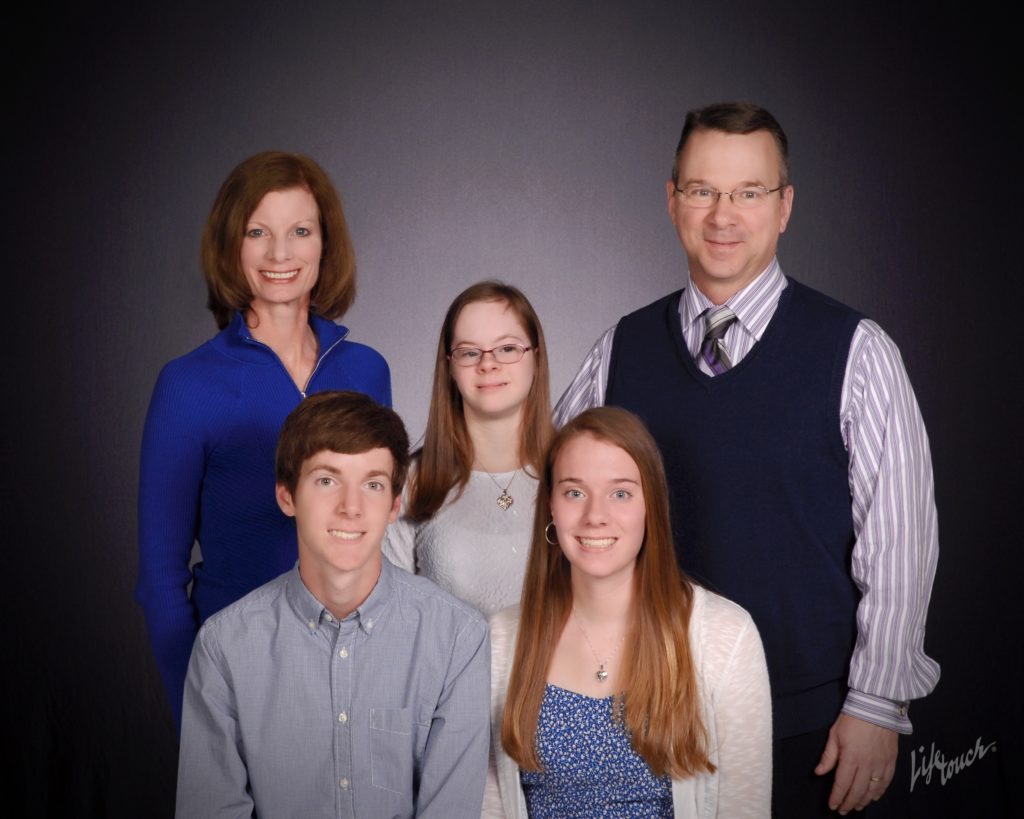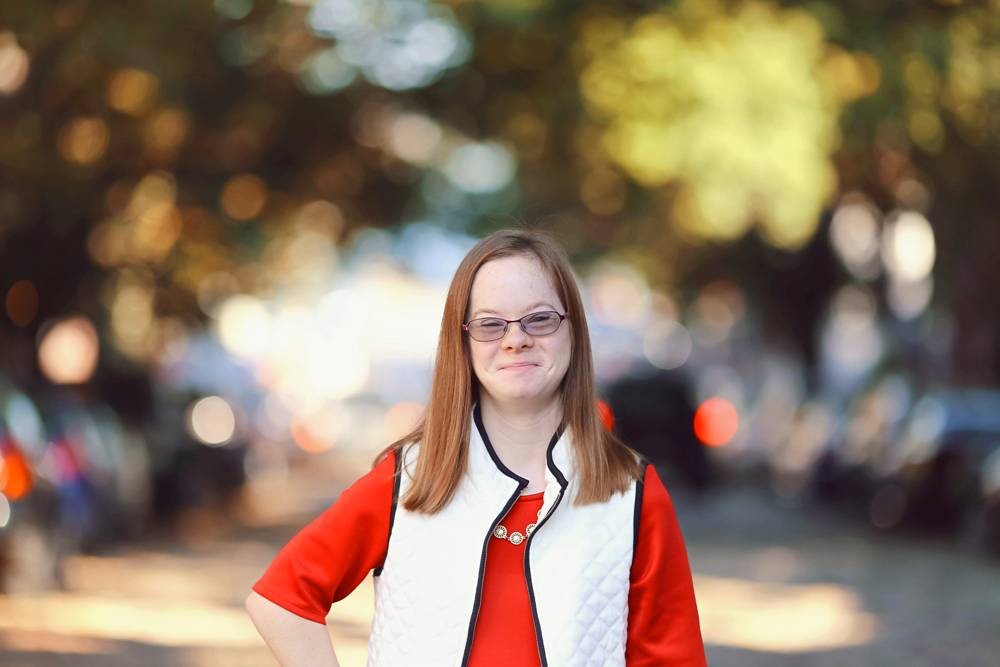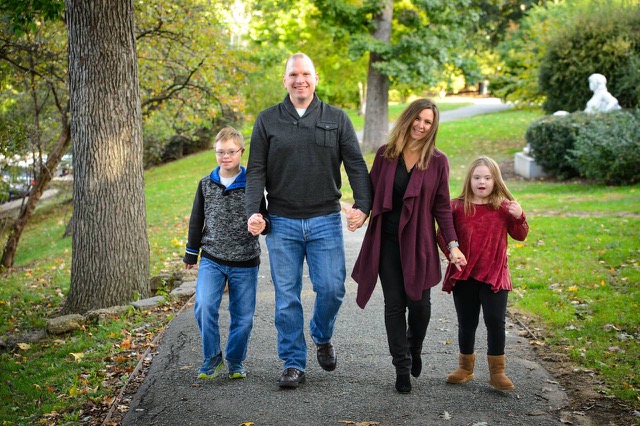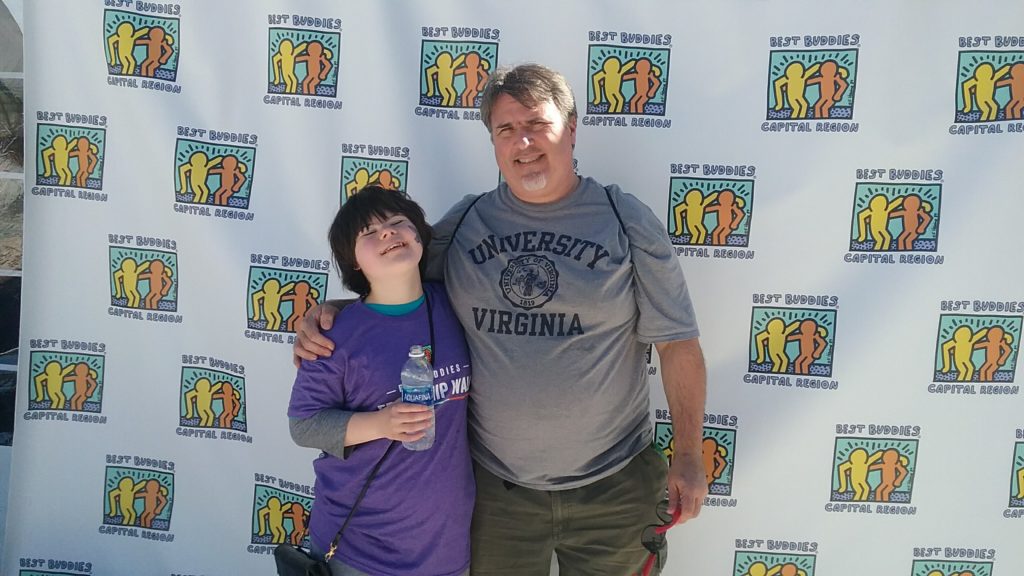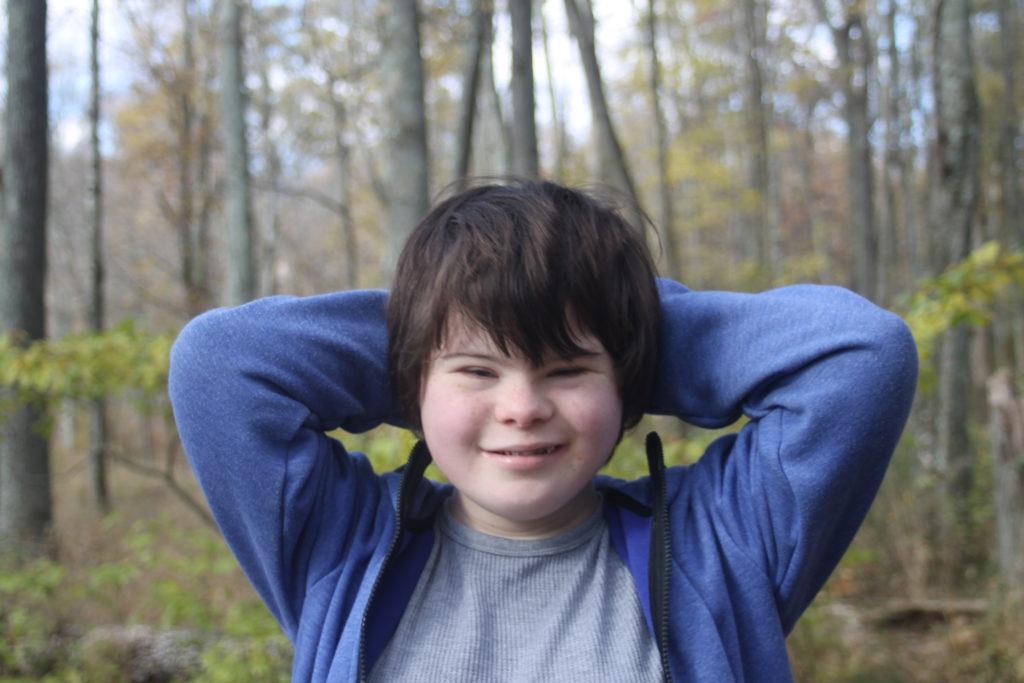Over the past two decades, parents say Arlington has become known as one of the best places in the country to raise a child with Down Syndrome.
Three local families with children with Down Syndrome told ARLnow that the county is renown for investing in resources, and its proximity to D.C. means parents are often uniquely suited to lobby for legislative fixes.
A “Tight-Knit” Community
Tom and Kay Tiernan have 20-year-old triplets named Jon, Liz, and Anna. Their daughter Anna was born with Down Syndrome and currently attends the county’s Arlington Career Center, which prepares her for the working world.
Anna plays in the Arlington Little League games for those with disabilities, which Kay says serves as an opportunity for parents to sit in the bleachers and swap stories about their children’s school experiences.
“Because Arlington is so small and with three high schools you can really connect and share what’s going on one act other’s back yard,” she said.
“A lot of it is knowing what’s out there that’s available to you,” said Rick Hodges, who is a father to 13-year-old Brita and 18-year-old Audrey — who also has Down Syndrome. “If you don’t know that there’s a resource then you don’t look for it, you can’t use it.
Hodges, who works as a journalist, said the “tight-knit” group of families with Down Syndrome children in Arlington helped clue him into resources like Early Intervention when Audrey was a baby, and the Department of Parks and Recreation’s therapeutic recreation activities when she was older.
Suzanne Garwood has two children with Down Syndrome — Connor, 16, and Sloane, who is 14, nonverbal and was recently featured in an advocacy video in New York City. She said there was once an opportunity in her work to move her family to Plano, Texas but she never considered it because she feared the social services wouldn’t be as strong as they are in Arlington.
“I would absolutely never leave the D.C. area,” she said. “I do think it’s unique.”
Although research has found disparities in life expectancies for people with Down Syndrome depending on their race, the genetic disorder itself affects all races equally and is caused by an extra copy of a chromosome in their cells.
“It’s a random genetic issue so you end up meeting all kinds of different people that you might not otherwise meet,” said Hodges of the community parents have formed.
Arlington’s community may be unique because of its proliferation of lawyers, journalists, and other high-powered professionals who fight for change.
“Maybe we are a little more aware of how to advocate for our kids and also our community very passionate anyway,” said Garwood, who is an attorney. “You have to be because a lot of times our kids don’t have voices for themselves, so they need us to do advocacy for them.”
One of the issues parents worry about is the housing shortage for people with disabilities, a problem exacerbated by Arlington’s overall shortage of overall affordable housing. The Medicaid program allows people with disabilities who turn 22 to receive housing vouchers, but Anna Tiernan’s parents say there’s no telling what position she is on the government waitlist.
“We don’t know if she’s 10th in line or 110th in line,” said Kay Tiernan, who works as a project manager for a tech company.
“Once you pass 21 it’s known as ‘the cliff’,” added Tim Tiernan.
“I do worry what it’s going to be like when they age out of school, and it seems it’s coming around the corner,” added Garwood.
All the parents who spoke with ARLnow said they hope banding together with disability advocacy organizations like The Arc of Northern Virginia and the National Down Syndrome Society, as well as volunteering on local government organizations like the Community Services Board, can help fix the problem.
“A few dads from Northern Virginia”
Rick Hodges did exactly that several years ago when he and other local parents pushed for what came to be called the Achieving a Better Life Experience (ABLE) Act.
The bill allows a disabled person to keep a savings account of up to $100,000 without jeopardizing their federal benefits, and was signed into law after Hodges says Northern Virginia parents leveraged their background as Capitol Hill staff and lobbyists to marshal bipartisan support.
The idea itself came from a seminar Hodges went to at Arlington Central Library about how to save up a college fund.
“They were talking about these things you can do to save and I realized that she might not go to college, I don’t know yet,” he said. “These systems for saving are based on a typical life. But Audrey may not have this kind of life, and it would ruin her government benefits.”
Now, local parents are it again with a push to change the subminimum wages companies are allowed to pay people with disabilities, as first reported by Disability Scoop.
Garwood said she’s worked with the National Down Syndrome Society to bring people with Down Syndrome to the Hill and talk about the importance of employment and fair wages with the staff of Sen. Tim Kaine (D-Va.), senator and Democratic presidential hopeful Elizabeth Warren, and Rep. Don Beyer (D-Va.).
“The old idea is that you would put them all in a room and have jobs made for them and pay them a few pennies,” said Hodgins. “That was well-meaning but we want to move beyond that and work regular jobs in the community and earn regular pay when they can.”
“It’s truly amazing what a few dads from Northern Virginia started with respect to the creation of the ABLE accounts, and the work is being continued by NDSS,” Garwood added.
“Tell people that your child died in childbirth”
Parents also cited the societal progress made in the last two decades as opening up opportunities for their families. In the last ten years, more people with Down Syndrome than ever are heading to college, playing sports, modeling for clothing companies, and leading TV shows.
“When people like Audrey were born it used to be that people sent them straight off to state institution,” said Hodges. “And doctors would even sometimes say, ‘Tell people that your child died in childbirth.'”
Tom Tiernan said a small but important change since Anna was born was the change of attitude around the now-taboo term “retarded.”
“There’s a movie out now called ‘Peanut Butter Falcon’ and we were at that movie and someone said the ‘r’ word and there was an audible gasp in the audience,” he said. “People knew that was an offensive word. I think 10 years ago that wouldn’t have been an offensive word.”
Garwood said she didn’t know her son Connor had Down Syndrome until he was born, and a nurse initially wrote “mongoloid” on the baby’s chart. The person to tell her and her husband about his condition was an on-call pediatrician she said was less than sensitive.
“He just stood probably 10 feet away from us and ‘I think your baby has trisomy 21 and turned and left,” she said. “And I start crying because I had read all the books.”
Garwood tested Sloane for Down Syndrome before she was born and said her OB-GYN also reacted strangely to the positive result. “She just handed me a prescription for Xanax which I hadn’t asked for but she felt that I needed that.”
‘We’re starting to learn how to accept folks with special needs’
Today, Garwood says she found a “fantastic” OB-GYN for Sloane just across the border in Fairfax County.
“She understood what you need for a person who is nonverbal,” she said of the doctor. “But she’s much younger so maybe it’s generational. We’re starting to learn how to accept folks with special needs.”
Sloane has started school at the new Shriver Program building this year, as her brother Connor continues his studies at Yorktown High School. And Audrey, newly graduated from Washington-Liberty High School, joined Anna for her first day at the Career Center earlier this fall.
Audrey and Connor also take advantage of a local martial arts gym with classes that cater to special needs children, and do trips and activities with the Arlington Public Schools Best Buddies Program.
“I ran into a family with a kid with Down Syndrome a few years ago, somewhere else in Northern Virginia, and they were moving to a small town so they can have that community for him,” said Hodges. “I feel like we already have that in Arlington.”
Image of the Garwood children courtesy Will Schermerhorn


